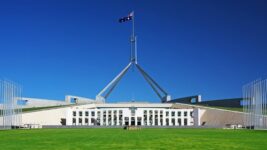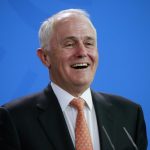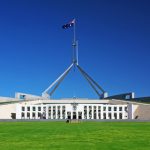Proposed Federal Anti-Corruption Commission: “Useless and Toothless”

Since Gladys Berejiklian’s resignation from NSW Parliament last week amid allegations of corruption and breach of public trust, the role of the Independent Commission Against Corruption (ICAC) has been debated once again.
It’s no secret that the NSW Government has an ‘uncomfortable’ relationship with the corruption watchdog – and this is as it should be.
After all, it is ICAC’s role to investigate corrupt conduct involving or affecting the NSW public sector, including state government agencies, local government authorities, members of Parliament and the judiciary.
Corruption investigation leads to resignation
Late last year, after Gladys Berejiklian had appeared before ICAC for the first time and revealed her secret relationship with disgraced former MP Daryl Mcguire, the NSW upper house voted to give ICAC a requested funding boost of $7.2million.
That decision was then voted down in May this year, raising questions whether it’s appropriate for ICAC to be reliant on the very body it has been set up to oversee.
Some MPs expressed serious disappointment because they view the corruption watchdog as integral to the democratic process, and paramount for maintaining transparency and accountability, but others see it as a body that gets in the way of politicians.
In fact, federal politicians have been resisting the introduction of a Commonwealth corruption watchdog for years, despite demands from the public that corrupt federal politicians must be brought to account for corrupt conduct in order to enhance the integrity of the political system at a national level, not just a state one.
Federal politicians don’t want a corruption watchdog
Deputy Prime Minister Barnaby Joyce has said: “ICAC out of control means that the bureaucracy reigns supreme and politicians are basically terrified to do their job.”
“Politicians at times have to make hard decisions. It’s not that they’re corrupt, they’re making decisions. There might be some disagreement with the bureaucracy, but that’s their right. That’s why people go to a ballot box and they see the name of politicians on the ballot paper, not the names of bureaucrats.”
In recent days, Prime Minister Scott Morrison has said: “I’m sure there are millions of people who’ve seen what’s happened to Gladys Berejiklian, they’ll understand that’s a pretty good call not to follow that [ICAC] model.”
The Federal Corruption Integrity Commission
In 2018, the Morrison government announced it would create a federal anti-corruption body to oversee la enforcement and public-sector integrity, but it has dragged its heels on the issue.
Finally, in November last year, it released a consultation draft bill for the Corruption Integrity Commission (CIC). It was heavily criticised for being both “useless and toothless”.
The Government is still promising that the bill will be passed by the end of this year. And while a final draft version of the integrity commission’s legislation has not been released, the original draft model which was put out by then Attorney-General Christian Porter was considered by Labor, the Greens and crossbench senators including Jacqui Lambie, Rex Patrick and Stirling Griff was considered to be fairly “spineless.”
One of the most prominent critics of the draft proposal has been esteemed Sydney barrister Geoffrey Watson SC, who described it as ‘designed to fail.’
It proposed tough provisions covering the scrutiny of law enforcement bodies, while providing significant protections for political staff and bureaucrats, which would essentially make it very difficult for allegations to actually reach investigators, limit what they could investigate, as well as ban public hearings and media reporting.
Federal Corruption watchdog is needed now more than ever
In a report released this week, the Centre for Public Integrity, an independent body, dedicated to preventing corruption, protecting the integrity of our accountability institutions, and eliminating undue influence of money in politics, compared the government’s proposed CIC with others which already exist in Australia and concluded that “would be the weakest integrity commission in the country”.
There is no guarantee that the CIC will be legislated by the end of the year. If the Senate amends the bill to toughen it, the government could still stall or block the bill in the lower house and delay the process further.
But it’s important to get the CIC right, for it to have appropriate scope, resources and authority.
While there is a significant difference between breaches of conduct, and corruption which involves potential criminal activity, the public has a right to know about both. Politicians are responsible for the allocation of taxpayer funds, and if there is any wrongdoing — minor or major — there should be an independent body to investigate on behalf of taxpayers.
And certainly, after the sports rorts scandal which was identified by the Auditor General, the revelations of pork barrelling by Peter Dutton after he hand-picked projects to receive grants from the Safer Communities Fund and most recently, Federal MP Christian Porter accepting money from ‘anonymous’ donors via a blind trust fund set up to pay his personal legal fees, most Australians would agree that a federal corruption watchdog is needed now more than ever.







